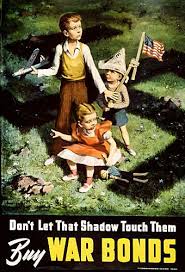What Is Propaganda? Definition, Examples and Sociological Perspectives

Propaganda is information that is basically tailored to an agenda. It gives information that will make a position that is held, stand up better in eyes or even try to manipulate you into thinking what the makers want you to think. It can be a reason that is unrelated, will somehow be skewed to support their agenda.
American Politics are saturated with propaganda to the point that many hate to watch television around election time. Statistics are used by both sides to somehow show that their opposing ways are the best way. It seemed only fitting that the Sociology book would reference politics as a way of explaining propaganda.
If a person is breathing, they know about the Sandy Hook Elementary School shooting of 26 children and adults. Not only is it a tragedy, but it has now been used by ever side to push agendas. The deaths of the children were blamed on the style of gun and the amount of rounds in each. This simple truth or piece of information has now been turned into a reason to take away guns of this type. Most will agree that this would not have stopped the perpetrator from killing children. It probably wouldn’t have even lowered the body count. Yet New York has already passed stronger laws on guns and there are already other states lining up. How can this be accounted for but with propaganda.
With so much propaganda swirling around on the news station, it may be advisable to learn as much as you can on a subject and make your own conclusions from the information. Resist information that is laced with opinions and try to stick to the facts.
Conflict theory would explain propaganda as a means to an end. One small group needs resources from another group and to achieve this they must convince another group to go along with their plans. If the plans were beneficially to both parties, there would be no need to use propaganda, so one group is to convince the other against their own detriment.
Symbolic Interactionism would describe propaganda as a way to manipulate the masses by projecting a feeling from an unrelated symbol. Like as described above, the symbol of those fallen children was then associated with gun bans so “this would never happen again.” This symbol has become so strong, that even though most say it wouldn’t have stop the incident, most associate the two without any help.
Functionalism sees the world as a whole and propaganda is a result of freedom of speech. It has long since been known that communication was paramount to get others to see things your way. Society has developed faster and easier was to get their agenda and ideas out, so now we are all bombarded with them. People that have more resources will have more money to spend on getting their views across will naturally be more successful at convincing and even manipulating others.



